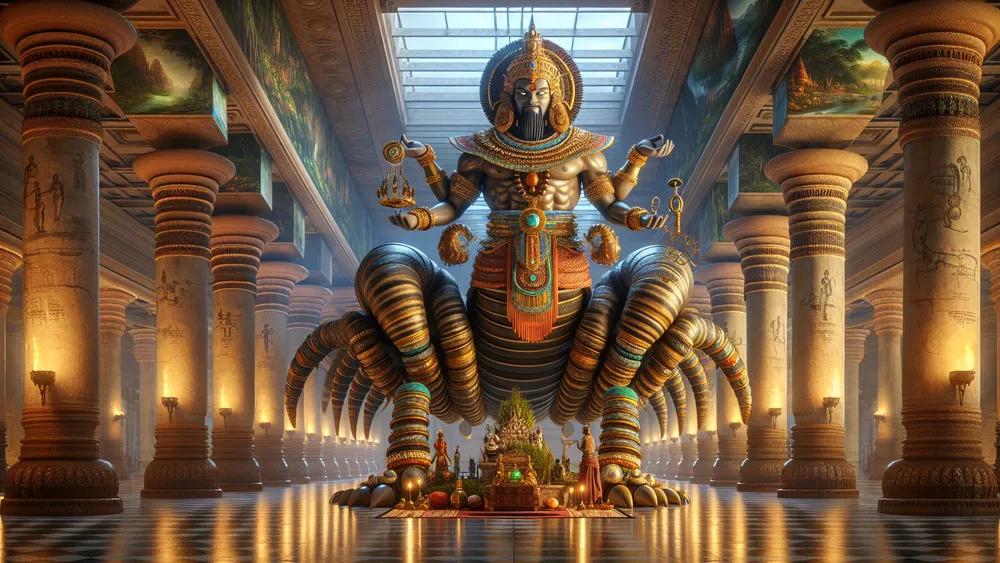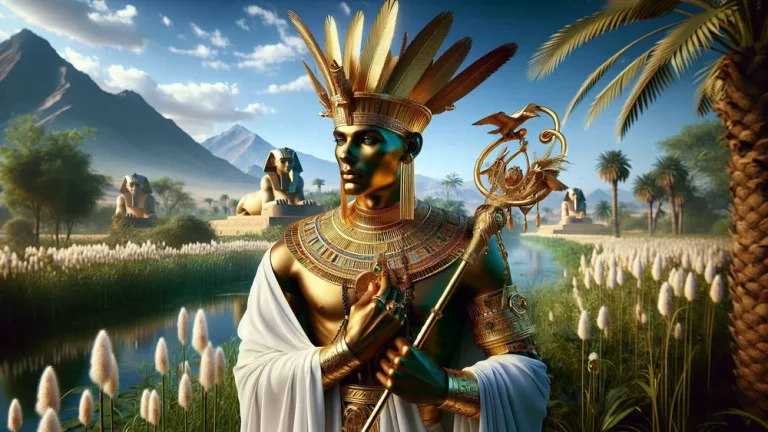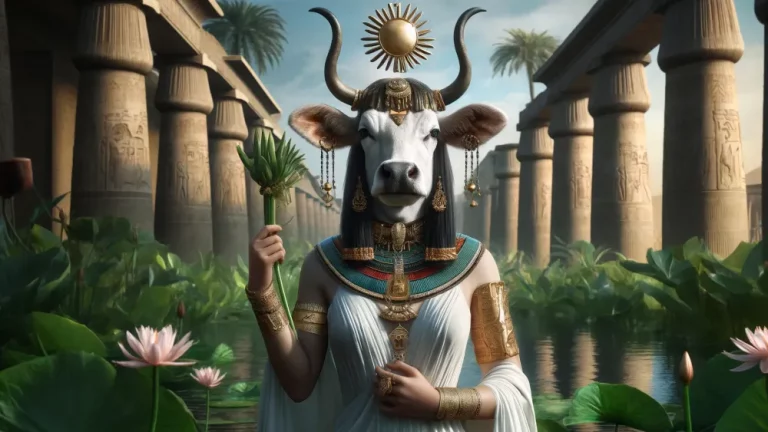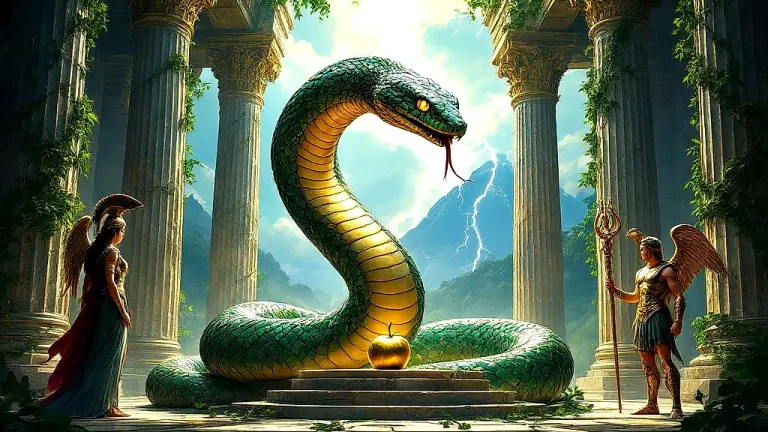Sepa: The Egyptian Centipede God Of Protection And Fertility
In Egyptian mythology, which is full of complex stories where gods and goddesses hold powers over life, death, and nature, Sepa comes out as a unique god having a double role. And it’s surprising. Imagine a guardian. Not only to keep you safe but grow life seeds, like when a careful person takes care of a garden, to both keep it safe and make it thrive.
Key Points:
- Sepa is the Egyptian god of protection and fertility.
- He is often seen as a centipede or a person with centipede features.
- Sepa protects people from bad spirits and harmful creatures.
- He is linked to farming and family growth, helping crops and births.
- Rituals and offerings were made to ask for his blessings.
- Sepa is unique in combining protection with fertility.
- He plays a big role in ancient Egyptian myths and farming traditions.
Sepa, the centipede god of Egypt means this duality, who becomes both a guardian and a sign of fertility. As we go through this blog post, you’ll find out the interesting story of Sepa because, as we explore this less-discussed god, who held a significant part in Egypt’s past culture, we see his role.
From what he looks like in old writings and objects to what the centipede means in Egyptian art, we will see how Sepa was appreciated for his safety and life-bringing traits. Whether you know a lot about myths or just want to learn more, this look into Sepa will give thoughts about the rich and complicated world of Egypt’s gods, showing the special place Sepa has in it.
Sepa: Overview and Key Facts
| Key Aspect | Details |
|---|---|
| Name | Sepa |
| Role | Watchful god and growth bringer |
| Symbolism | Centipede |
| Cultural Significance | Looked up to as a guardian and a sign of life, which means renewal in old Egypt |
| Depictions | Often appears as a centipede or a person with centipede bits in old objects |
| Protective Attributes | People believe he wards off bad spirits and dangerous critters |
| Fertility Attributes | Linked with farming fertility and making families |
| Worship Practices | People made offerings and did rituals for his help and good vibes |
| Related Deities | Seen like other gods who protect, such as Anubis, and gods of growth like Osiris and Isis |
| Historical Texts | Named in many old Egypt writings and cursive carvings |
The Story Behind Sepa
When we dig into Sepa’s world, we will find the beginnings and importance of this interesting god in old Egyptian stories. With Sepa, what stands out is how his safe and fertile traits are seen in old writings and objects. And they mean a lot.
Sepa in Ancient Egyptian Mythology
In the mix of Egyptian stories, Sepa comes up as a god because ancient Egyptians knew the world around them and its safety parts well. Sepa, with the centipede often linked to him, was admired for stopping bad spirits and also for harmful creatures, similar to how a strong barrier protects a garden from those who might cause harm.
And his job as a protector was not just in the physical but also in the spiritual, which means he was believed to keep away bad forces, helping both people and their towns. Because he played this role, Sepa was a key figure in regular Egyptian activities. People sought help from him through different rituals and gifts.
Old writings and objects let us see the way Sepa was shown and admired. Often, he looks like a centipede or a person with centipede parts, showing his link to the earth and his protector role. These pictures don’t just mean art. They mean his nature as both protector and as a sign of growth. The centipede, having many legs, was thought to move through earth’s hidden corners, just like Sepa could move in the spiritual world to guard. Writings and sculptures often point out his traits, showing his importance in ensuring land’s safety and growth. To see Sepa’s meaning, think about these key attributes often linked to him:
- Protection: Sepa was asked to guard against bad spirits and harmful creatures.
- Fertility: Seen as helping farm growth and people having children.
- Symbolism: The centipede, his mark, meant his power in both physical and spiritual places.
Sepa, a significant Egyptian god, was revered for protecting against harmful spirits and promoting growth, symbolized by the centipede, which represented his dual role in both physical safety and spiritual well-being.
What the Centipede Symbolized in Ancient Egypt
The centipede, more than just an animal moving around in old Egypt, was filled with deep symbolic meaning standing for safety and growth. Its many legs were like a lot of guards watching out for threats. To Egyptians, this made sense, which meant they saw the centipede as a natural guard against bad spirits and dangerous things.
Its way of getting into small hidden places in the earth meant it was also tied to the idea of growth, as people thought it could move through the underworld, affecting life and death cycles. By being in art with gods like Sepa, the centipede appeared as a strong symbol of safety and life-making forces.

These pictures don’t only mean art; they are proof of what people thought it could do, and they illustrate its important role in the spiritual and cultural map of old Egypt.
How Sepa Kept People Safe
After we have looked at the centipede’s symbolism and how it connects to Sepa, we should now examine ways Sepa protected the people of ancient Egypt from danger. Since we talked about these connections, they means that Sepa helped keep the ancient Egyptians safe. Now, let’s look at specific methods he used for their protection.
Sepa: The Guardian Spirit
In ancient Egyptian stories, people respected Sepa as a strong guardian spirit. His job was to protect everyone from unseen dangers like evil spirits and dangerous creatures, similar to someone always watching a home. During times like childbirth or when someone was sick, people asked for his help because they believed evil spirits might move in.
Sepa’s presence, therefore, felt comforting and acted like a divine shield offering peace to many seeking his protection. From stories of ancient Egypt, Sepa often appears as a guardian. For instance, one story talks about how he keeps grave robbers and bad spirits away from a pharaoh’s tomb to let the dead travel safely to the afterlife.

Also, villagers called upon Sepa to keep their homes safe from many snakes, thinking his power could drive them off. These stories do not only mean Sepa was important as a protective god, but they also reflect the bigger cultural belief that asking gods’ help can drive away evil. Through these stories, Sepa’s image as a guardian spirit stayed strong, reminding everybody of the protective forces Egyptians valued deeply.
Ceremonies and Gifts for Sepa
To call on the protective powers of Sepa, ancient Egyptians took part in various rituals and offerings, which were done in sacred places. People gathered there with priests to do certain rites to respect Sepa and ask for his help. Giving gifts was a big part of these events, which means they showed how thankful the people were. Common offerings meant to please Sepa, helping to make his protection strong, included:

- Incense and Oils: These were used to clean the space and make it feel special.
- Figurines of Centipedes: These stood for Sepa’s form and were meant to call him.
- Food Offerings: Bread and beer were used, meaning thanks and support.
- Chants and Prayers: Said aloud to call Sepa’s power for protection and to show respect.
Sepa’s Connection to Growth and New Life
After we have looked at how Sepa protects, it is time to consider his role in helping growth and new beginnings in ancient Egyptian stories. Now, we focus on the important parts of his influence, which are just as crucial.
Sepa and Stories of New Beginnings
In ancient Egyptian stories, Sepa is seen both as a protector and as a sign of growth and new beginnings, holding an essential place in tales about the cycle of life. People thought Sepa helped life, encouraging growth all around, in fields and families. During times of drought, Sepa was called to restore the land, and his presence meant good crops followed.

This idea showed belief in Sepa’s power to make the land fertile again, making sure cycles of planting and taking in crops didn’t stop. Sepa’s effect was not only about guarding but also about hope and renewal, very important to their life. Not only in fields, Sepa’s role was crucial in helping with human birth and family growth.
Seen as one who could bless families with children, Sepa was important where family lines mattered a lot. His role in ensuring families could grow is like a charm today, offering comfort and help. Many turned to rituals asking Sepa to help them have children, believing he helped them have children.
This belief in Sepa’s role in helping plants and families to grow highlights his dual role as a protector and nurturer, important for their way of life.
Sepa was both a guardian and a symbol of new beginnings in ancient Egypt, believed to help crops and families grow, making him essential for life and hope.
Sepa’s Part in Farming Traditions
In ancient Egyptian farming, Sepa was like a trusted advisor who guided farmers to find fertile lands. He was really part of farming practices where people did rituals, calling for his blessings. These ways are much like how today’s farming aims to get good crops. Festivals for Sepa happened during planting and harvest seasons; times when people came together, making offerings, to make the soil good. The table below means understanding how Sepa was part of these practices:
| Agricultural Practice | Sepa’s Influence |
|---|---|
| Soil Preparation | They did rituals to bless the land before planting |
| Planting Ceremonies | Festivals were for calling Sepa’s help to grow |
| Harvest Celebrations | People made offerings thanking Sepa for good crops |
| Pest Control Rituals | They called on Sepa to keep crops safe from bugs |
Comparing Sepa to Other Egyptian Gods
After we have looked at Sepa’s protection and fertility, it is interesting to see how his special traits differ from those of other gods in Egyptian mythology, revealing new insights.
Sepa vs. Other Guardians
Among the Egyptian gods, Sepa has a role that is different and also works alongside other protectors like Anubis and Bastet. Anubis helps the dead find their way in the afterlife carefully, while Bastet is known for keeping homes and families safe, like a watchful cat. Sepa’s distinctive protective powers relate to his link with the centipede.

This connection means he can keep away bad spirits and creatures, like stopping bad garden pests. Sepa’s protection focuses on unseen dangers, providing both physical and spiritual defense; this makes him essential in Egyptian beliefs, where he is called on to keep peace in the world and beyond.
Sepa and Other Fertility Gods
In the area of fertility, Sepa stands with other important gods like Osiris and Isis, each having their special part in the cycle of life. Osiris is a god who is known for life after death and is strongly connected to fertile lands, similar to how farm work keeps soil good. Isis, meanwhile, is about nurturing fertility like she helps families grow.

Sepa’s role is different; he promotes fertility and offers protection, acting like a tool for many things at once. This lets Sepa help growth and renewal, making sure the land and people do well under his care. His ability to connect protection and fertility makes him a unique and important part of the Egyptian gods.
The Pantheon of Egyptian Mythology
The group of gods in Egyptian mythology is a vast and detailed collection of deities with their own roles and traits, which show the rich cultural and spiritual life of ancient Egypt. Known gods like Ra, the sun god, or less talked-about ones like Sepa, meant much to the daily lives and beliefs of the Egyptians.
For those deeply interested in seeing all these gods, a full Egyptian gods list gives a close look at the major gods and goddesses that shaped this ancient world.
FAQs
1. Who was Sepa in Egyptian mythology?
Sepa in Egyptian mythology was a deity associated with protection and fertility, often depicted as a centipede.
2. What symbols are associated with Sepa?
Symbols associated with Sepa include the centipede, which represents his protective and fertile attributes in Egyptian mythology.
3. How was Sepa worshiped in ancient Egypt?
Sepa was worshiped in ancient Egypt through rituals and offerings that included incense, food, and amulets to invoke his protection and fertility blessings.
4. What are some myths involving Sepa?
Some myths involving Sepa depict him as a protector against venomous creatures and a symbol of fertility, often invoked in rituals to safeguard homes and promote agricultural abundance.







